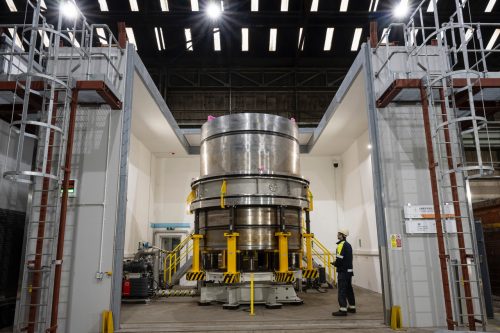Pension fund capital unlocked to boost innovative businesses

Chancellor Jeremy Hunt said the government would unlock more pension fund capital to support entrepreneurs, with new powers to the Pensions Regulator and Financial Conduct Authority to ensure better value from defined contribution schemes judging performance on overall returns rather than costs.
“Economists say that stimulating investment is the most effective way to raise productivity, and therefore wages and living standards, he said. “Since 2010 we’ve been doing just that business.”
“One of the most powerful ways to attract investment may be supporting our most innovative industries. Outside the US we have the most respected universities the biggest financial services sector and the largest tech ecosystem in Europe. We have double the AI startups of anywhere in Europe, double the venture capital investment. The tech economy is now double the size of Germany and three times the size of France. We’re on track to become the world’s next Silicon Valley.”
He said the government would unlock more pension fund capital to support entrepreneurs, with new powers to the Pensions Regulator and Financial Conduct Authority to ensure better value from defined contribution schemes judging performance on overall returns rather than costs.
“Economists say that stimulating investment is the most effective way to raise productivity, and therefore wages and living standards,” he said. “Since 2010 we’ve been doing just that for business.”
He said business investment had risen from an average of 9.3% of GDP under Labour to 9.9% under the Conservatives, and would be 10.6% this year – around £30bn.
The government would shortly publish draft legislation to extend full expensing to leased assets, he said, promising to introduce this “as soon as it’s affordable.”
He also pledged £200m of funding to extend the recovery loans scheme as it transitioned to the growth guarantee scheme, which he said would benefit 11,000 SMEs. He announced the VAT registration threshold would increase from £85,000 to £90,000 from 1 April
“More investment in our large businesses, more support for small businesses, promoting investment in our nations and regions are all part of a budget for long term growth that sticks to our plan to deliver more jobs. better public services and lower taxes,” he said.
He then turned to specific sectors.
He announced Great British Nuclear’s deadline for tenders for the next phase of small modular reactors would be in June, saying this would be in line with the Government’s ambitions to produce a quarter of the UK’s electricity from nuclear power by 2050.
He also announced £270m investment into advanced manufacturing, with R&D into zero-emission vehicles and clean aviation technologies.
He said he wanted to encourage the UK’s growing creative sector.
Describing the UK as ‘second only to Hollywood’ in the amount of studio space available, Hunt announced a 5% increase in tax credit for audio visual costs and removal of the 80% cap on visual costs in audio-visual expenditure credits, and a 40% relief on gross business rates for eligible studios.
He also announced a new tax credit for independent UK films with a budget of less than £50m. He also make tax credits on orchestral productions introduced during the pandemic permanent, with a rate of 45% for touring productions and 40% for non-touring productions.
Suzy Harris-Milnes, Tax Partner at BHP said: “It felt like the Chancellor was hoping this would be labelled a Budget for Businesses as he read out a number of reforms and changes which he hoped would drive growth for UK plc.
“The hospitality industry will certainly be pleased with the freeze on alcohol duty until February 2024 and the extension of the 75% discount on business rates for retail hospitality and leisure businesses will be extended for another year.
“Similarly, the creative sector was given front of stage, with tax relief on performing arts productions made permanent and a number of incentives offered to the film and TV industry. The latter included a 5% increase in tax credits for creative businesses, a new tax credit for independent UK film productions and over £1bn in additional tax relief for creative industries as part of commitment to attracting international investment.
“The news of the increase to the VAT threshold is a double-edged sword and although welcomed, will certainly feel a little small being only broadly in-line with inflation after the threshold was frozen for seven years.
“Evoking Budgets past, the Chancellor also announced a new tranche of Enterprise Zones which will go live from 1 April in the North and Midlands and feature a 10-year package of funding.
“At first glance it looks positive and it’ll certainly provide some relief to sectors who have been having very public challenges of late.”









